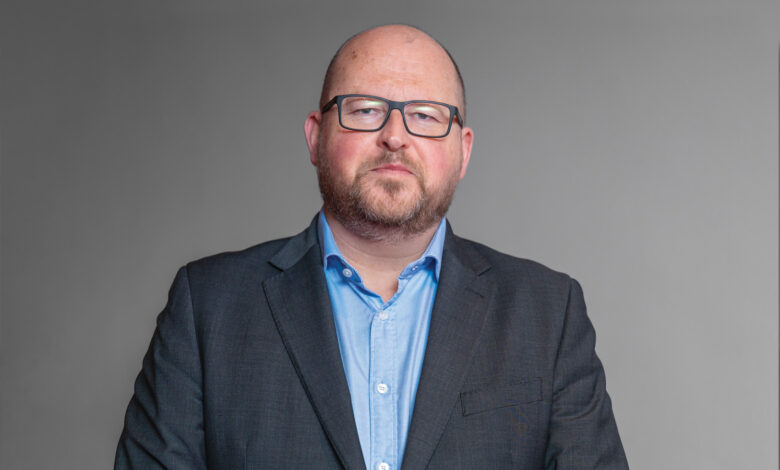TRADE UNION DESK: Irish trade union movement will continue to advocate for Occupied Territories Bill

Amid efforts to undermine the Occupied Territories Bill, the trade union movement in Ireland will continue to urge the Oireachtas to enact the legislation as soon as possible, writes Owen Reidy, General Secretary, Irish Congress of Trade Unions (ICTU).
Over the past few months, the Occupied Territories Bill has continued its slow progress through the machinery of government and the Oireachtas. In that time, we have all watched as the Israeli Government’s murderous campaign in Gaza has continued, alongside increased violence in illegally occupied Palestinian territories.
Despite this, as the Bill has progressed, the campaign to undermine it both at home and abroad has increased.
Throughout July 2025, there were a clearly concerted series of comments from US lawmakers and diplomats, some of them offensive, criticising Ireland. In doing so, they betrayed a complete lack of understanding of the legislation in question.
The US Ambassador to Israel, Mike Huckabee, accused Ireland of being “drunk”, and having fallen into a “vat of Guinness”. US Senate Foreign Relations Committee chairman Senator Jim Risch said Ireland was on “a hateful, antisemitic path”.
Meanwhile, the Oireachtas Committee on Foreign Affairs and Trade has been hearing evidence in relation to the Bill, as part of its pre-legislative scrutiny. Hearing from the Ireland Palestine Solidarity Campaign, Jewish Representative Council of Ireland, and others.
During one session, various concerns were raised by Ibec, including on the feasibility of implementing the legislation, and its potential effects on US-Irish relations.
It was claimed that it would be “incredibly difficult” for businesses to prohibit trade in services with the illegal Israeli settlements, and that trade in services is just practically speaking “incredibly hard” to identify and stop.
However, businesses are already required to do exactly this regarding Russian-occupied territory in Ukraine. In 2014, when Russia occupied Crimea, Ireland (and the EU) immediately banned business here from trading in both goods and services with those occupied territories. The same principle applies to legislation for Israeli-occupied territory.
“Congress’ colleagues in the Palestinian trade union movement have requested us to escalate all efforts to end any complicity in Israel’s illegal occupation, colonial apartheid, and genocide.”
Owen Reidy, General Secretary, Irish Congress of Trade Unions
It is also important to note that under EU law, Irish companies are already required to track services that trade with (a) Israel and (b) the illegal settlements, and to distinguish between the two. Under the EU-Israel trade deal, Israeli goods are entitled to reduced-tariff access to the single market.
The EU is clear that the settlements in the occupied territories are illegal and not a part of Israel, and therefore full tariffs must be applied to all trade with them, in both goods and services.
Aside from the supposedly practical considerations, there has been a vaguely patronising and condescending suggestion that while the Bill is all very well meaning, the risk to investment is such that it should be dropped.
Leaving aside the morality of placing such a price on our principles, the central fact – one that is often lost or forgotten in these discussions – is that the Irish Government, EU, International Court of Justice, International Criminal Court, and UN are all clear: the settlements are illegal under international law.
During their evidence to the Committee, Ibec raised concerns that the legislation would mean companies falling foul of anti-BDS (Boycott, Divest, Sanction) legislation in place in certain US States, alongside the risk of reputational damage.
The point remains that the occupied territories are not recognised as Israeli territory, and thus the issue of it being a boycott of Israel does not arise.
Even setting that aside, if standing up for the international rules-based order is symbolic, that is undoubtedly important, and something the Irish Government should be doing proudly.
Furthermore, while Irish-based commentators have been quick to dismiss the importance of the Bill, Congress’ colleagues in the Palestinian trade union movement have requested us to escalate all efforts to end any complicity in Israel’s illegal occupation, colonial apartheid, and genocide, and that includes the Occupied Territories Bill. Such efforts were backed at Congress’ recent Biennial Delegate Conference, with unanimous backing of the 600 delegates.
In addition to this, all the main political parties – garnering over 80 per cent of the votes in the 2024 general election – committed to implementing the Occupied Territories Bill in some form. Beyond that 80 per cent, a further 15 per cent of votes went to Independent candidates, many of whom would also support passing the Occupied Territories Bill. The Bill is something that Irish voters have clearly endorsed.
One would hope that representative groups are working to inform our friends in the US and elsewhere that the legislation is not what the far-right of US and Israeli politics claim it to be. It is a targeted measure at settlements deemed to illegal, one which has the strong backing of the Irish public.
For much the same reason, and with the appalling events in Gaza continuing, the trade union movement will continue urging the Oireachtas to pass the legislation as soon as possible.





